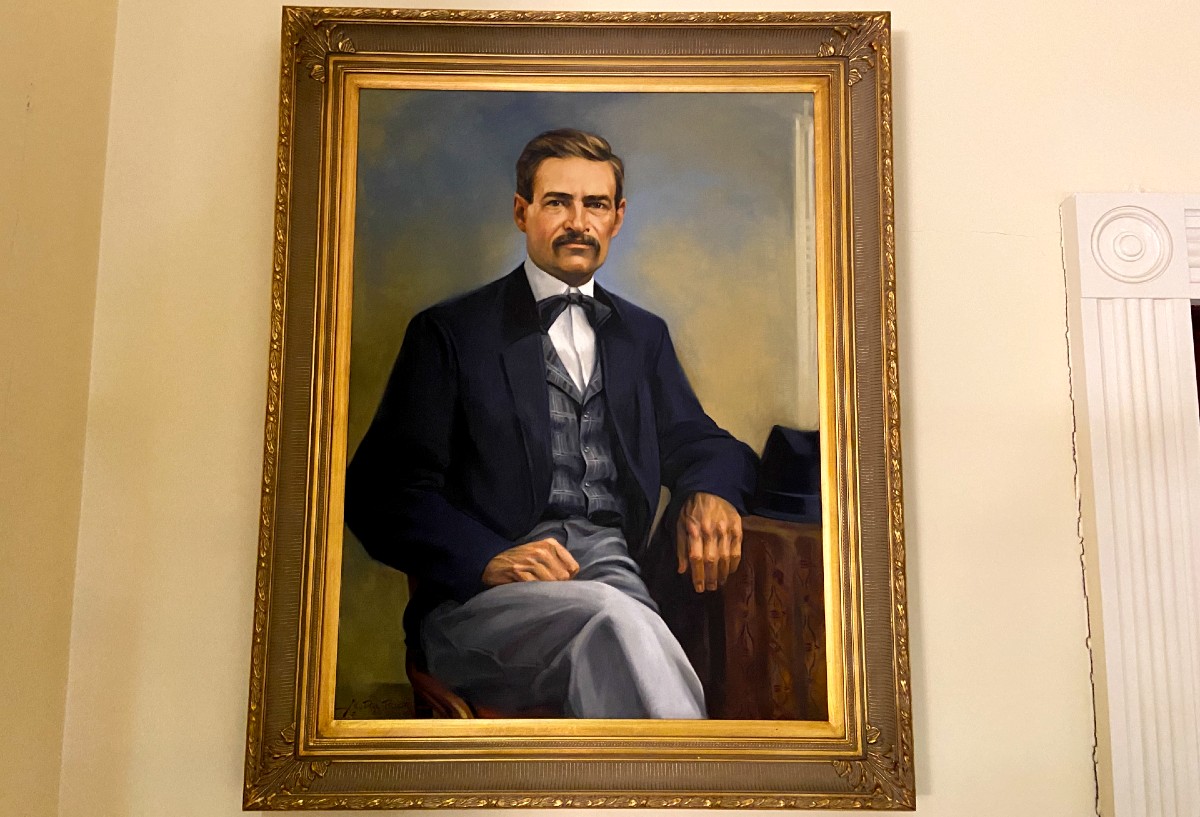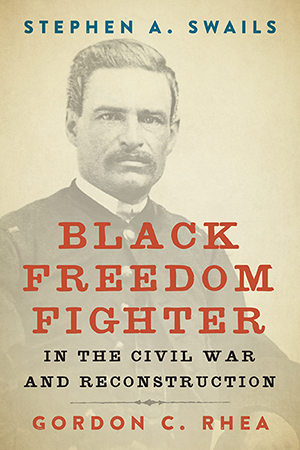
Editor’s Note: This story, originally published in the Charleston City Paper, follows up on a related Oct. 15 story in Statehouse Report, about a portrait now hanging in the Senate chamber.
By Herb Frazier, Charleston City Paper | Four years ago, Civil War historian and Mount Pleasant-based attorney Gordon C. Rhea began an exploration into the life and legacy of a little-known black Civil War hero.
A decade before Rhea’s research of soldier-turn-politician Stephen A. Swails, a private group had commissioned a portrait of Swails for the state South Carolina Senate chamber where he served after the Civil War.

A 13-year wait to place Swails’ portrait in the Senate recently ended when, after questions from a reporter, it was finally taken out of a closet and mounted in the chamber just in time for Rhea’s latest book. This month the Louisiana State University Press is scheduled to release Stephen A. Swails: Black Freedom Fighter in the Civil War and Reconstruction.
From 1868 to 1878, Swails represented Williamsburg County in the Senate, including three terms as president pro tempore. He was an attorney and mayor of Kingstree where he published a newspaper, The Williamsburg Republican.
Swails’ political life followed his service in the U.S. Army that began when he joined the 54th Massachusetts Volunteer Regiment, composed of mostly free Black men from the north who fought against slavery. Swails was with the unit during a bloody battle on Morris Island near Charleston.
Including his upcoming biography of Swails, Rhea has written eight books on the Civil War. He is best known for his award-winning account of the Overland Campaign, a five-book series that tells the story of three massive battles and dozens of skirmishes in Northern Virginia.
Over a vegetarian burrito at Santi’s on Morrison Drive, Rhea talked about his book with the Charleston City Paper.
City Paper: What did Swails do when he left the military?
Gordon Rhea: Swails worked with the Freedmen’s Bureau in the Kingstree area. He won huge support from the Black population and also from a lot of the white population. He was an arbiter between the freedmen and former masters. The Freedmen’s Bureau helped the newly freed population receive an education, get land to farm and live real lives. Swails mediated disputes. He helped former plantation owners come to terms with the fact that they had to deal with people differently than they had in the past. He handled that in a very smart way.
CP: In your research did you see similarities between today and the Reconstruction period when Swails served in the Statehouse.
GR: At the end of the Civil War obviously slavery was dead. But the predominantly white population of South Carolina and many of the other southern states had as a major goal to restore the situation as close as possible to what it was pre-war. Fortunately, there was significant intervention by the U.S. government, which set requirements for new elections to be held in which race was not a factor and a new constitution was drawn. Swails was involved in drawing up the new constitution of South Carolina.
CP: As a seasoned Civil War historian, what surprises did you find during your research of Swails.
GR: I was very familiar with the Civil War battles, but I had never delved into the details of Reconstruction. I was astounded at the level of violence as the white population tried to regain total control. I was surprised to learn that the federal government initially supported the African-American population, but then (the government) got tired of spending that kind of money and backed away. So it led to a total abandonment which in many ways encouraged white supremacists in their fight because now they realized there’ll be no more U.S. marshals or federal troops in the state and no more official Washington support for equal rights. The collapse of Reconstruction led to a violent retribution against the black population that led to Jim Crow and to other inequities, many of which persist today.
CP: Describe the level of violence toward Black people during Reconstruction.
GR: The violence of the 1870s was much more targeted. There were targeted assassinations of black leaders and white leaders who sympathized with blacks in South Carolina. Their purpose was to let the black population know if it didn’t stay in line they could be badly injured or killed.
CP: What were the efforts used during Reconstruction to block the black vote?
GR: The white populace viewed themselves as having lost control of the state because so much of the black population was voting. Controlling the ballot box became critical. One thing that’s going on right now is gerrymandering. That went on big time back in Swails’ days. Basically, the white-controlled Senate at the end of Reconstruction reconfigured judicial districts and put most of the Black people into one district so that all the other districts would be predominantly white.
CP: Any other surprises or lessons learned?
GR: I was surprised how someone like Stephen Swails was able to maneuver through the intricacies of the political process to walk and talk with both sides. He was selected as the speaker pro tempore in the South Carolina Senate and held that position throughout Reconstruction. So he was the top man. He was putting the deals together. He was trying to make things work.
CP: What person today has Swails-like qualities?
GR: I think Congressman James Clyburn has a lot of those same attributes. He knows how to fight for his constituency, but at the same time, he knows the importance of making compromises, making deals that move the ball in the right direction.
- Have a comment? Send to: feedback@statehousereport.com.















 We Can Do Better, South Carolina!
We Can Do Better, South Carolina!